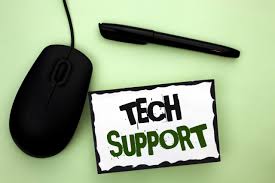 Kudos to the Forbes Technology Council! Their post, 20 Untapped Tech Opportunities to Serve Older Adults was a great addition to the write-ups about tech for older adults. Hopefully it was seen by entrepreneurs considering market entry with a new invention, including the innovators/investors at the What’s Next Longevity Venture Summit in Berkeley, underway today. And the reverse is also true – the Forbes folks should look around and see what’s already announced or in-market. Here are their suggestions that caught my eye -- for startups, investors, and just plain reverse mentors:
Kudos to the Forbes Technology Council! Their post, 20 Untapped Tech Opportunities to Serve Older Adults was a great addition to the write-ups about tech for older adults. Hopefully it was seen by entrepreneurs considering market entry with a new invention, including the innovators/investors at the What’s Next Longevity Venture Summit in Berkeley, underway today. And the reverse is also true – the Forbes folks should look around and see what’s already announced or in-market. Here are their suggestions that caught my eye -- for startups, investors, and just plain reverse mentors:
The Forbes list makes some interesting recommendations – start with voice! This one suggests voice-activated interface to replace touch screens. Don’t all smartphones and tablet devices and apps have that already? Consider Alexa, Google/Gemini, or Perplexity AI voice assistants, as examples. Or the fact that a microphone symbol appears on most smartphone apps, enabling speaking – even Realtor.com responds to voice if a smartphone microphone is enabled. We may be on the way to this being a reality – but more can be done.
Next – accessibility testing built into product design. Validating products for ‘usability, readability and navigation’ – this would be a breakthrough, as some apps are still impenetrable, app features hidden by non-intuitive symbols (see Kindle app). How about usability of navigating app libraries – maybe even finding an app by voice?
Reverse mentoring through cross-generational tech. Years ago at an AARP convention, through a program called MentorUp, young members of local 4H clubs sat down with older adults who were nearly completely unaware of tech they might enjoy – like photos, for example. Today that barrier may be gone, but many others keep appearing after the latest app upgrade. How to seek and find a reverse mentor? Senior centers offer tech training, and there are a gazillion videos on Senior Planet or YouTube. But still, it would help older adults to find someone to help them when using a new tool suggested by a family member.
Adaptive technology evolves with users. This has such potential – as the hands begin to shake, the vision or hearing declines, even slightly – how about apps detecting and suggesting adaptations? “Would you like help with finding something?” “What is a QR code – and why is it the only way to examine a concert programs or restaurant menu?”
Note that the above suggestions do not require a senior-specific technology. One of the assumptions developers have made is that standard, commercially available tech is not quite right for seniors – or that specialty tech (such as fall detectors) is required. But most specialty tech for seniors, however, really are just features that could be found in AllTech if designers thought about the older adult tech market and its future potential -- $120 billion by 2030.
[See new report, The Future of AI in Home Care]

 Kudos to the Forbes Technology Council! Their post,
Kudos to the Forbes Technology Council! Their post,
Comments
Great article, thanks
Thanks Laurie. Great article and the additional information is very helpful.